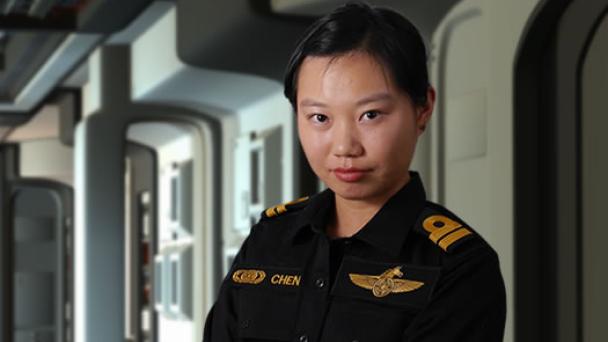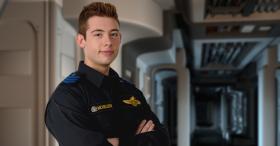Related
Civilian advisors assist the ISDC by providing analysis and insights into the organisation’s operations. Advisors have access to highly confidential mission reports, telemetry and sensor data from deep space missions.
Crew are the technical specialists of the ISDC and receive applied technical training in their chosen professional fields right from the beginning of their careers.
Lieutenant Amelia Chen is a science officer, coordinating the teams that scan and analyse vessels, objects and phenomena that Endeavour encounters in space. It’s her responsibility to ensure that as much as possible is discovered and passed on to the Conn during such encounters to ensure the safety of the ship and the success of the mission.
Amelia is a military officer, having come to the ISDC from the Chinese military’s space program, but an astrophysics officer might just as easily come from an academic background as a warrant officer.
What Would I Be Doing?
Interested in Amelia’s role?
As science officer you'll need to be ready to explain the unexpected or the unusual to the rest of the crew so that they can decide whether to celebrate a new discovery, make first contact or prepare to defend the vessel. While you may be supported by specialists from other scientific disciplines, as the officer on the bridge you are ultimately responsible getting the Conn the information they need.
Tactical Analysis
The tactical team can spot and track other objects such as vessels in space, but only the science officer can scan and visualise those vessels. The science officer would provide analysis of a vessel’s configuration including whether it had been encountered before and provide guidance on its behaviour, including warning of possible hostile action.
Scientific Analysis
Not everything encountered in space is necessarily a ship or even artificially constructed. A science officer needs to analyse an unknown object or phenomenon quickly and provide guidance to the Conn on how to deal with it.
Becoming a Science Officer
Science officers are specialists and so are more focused on their area of expertise than regular line officers, although they may still be expected to manage teams. As well as training on Endeavour’s sensor and analysis systems, science officers also bring with them the knowledge gained from their scientific study and research.
As specialists, science officers can follow either an officer or warrant officer career track, usually depending on where they studied – at a military academy or a university.
Officer Career Track Warrant Officer Career Track
First Steps
It starts by signing up as a cadet or candidate (depending on the career track chosen). It's obligation free and provides access to more information about the mission and Endeavour's technology as well as access to the Academy and assistance from instructors.
You’ll be asked to choose a ship system that interests you and begin training. An aspiring science officer would likely want to get rated on Sensors early to secure mission time.
When you successfully complete a training course you’ll be qualified (or ‘rated’) to operate that system on missions. You’ll also be promoted to Ensign or Junior Warrant Officer.
Gaining Experience
As a new ensign you’ll look to join a crew and undertake missions. Each mission completed gives you experience points (XP) which count towards promotion.
Endeavour’s mission offers a unique opportunity for scientists to move beyond theory as the ship encounters vessels, objects and phenomena, applying their knowledge to each new discovery.
You’ll also need to keep training, as additional ratings are also needed for promotion.
As specialists, science officers would typically choose additional ratings from within the branch. Your choices will be guided by your interests.
Astrophysics provides useful insights during deep space exploration, helping the crew identify and deal with any deep space phenomena encountered
Geophysics is valuable to the search for other civilisations – a key mission objective – by deciding if a planet is worth exploring and where specialist away teams should start
Systems training will only take you so far. Science officers need to draw on research across their chosen disciplines, including current and theoretical propulsion, weapons and communications systems, field, quantum and gravitational mechanics, the behaviour of astronomical bodies and phenomenon… to name just some.
Advancement
Stepping up as executive science officer requires a rank of at least Lieutenant Commander or Senior Warrant Officer. Logging XP as an instructor in addition to missions will help convince the promotion board you have what it takes.
There’s nothing to prevent a military science officer attaining a command rating and taking the captain’s chair, but requires stepping away from the science. As a specialist a science officer (either military or warrant officer) is eligible to qualify for a master rating with the necessary XP and a significant scientific contribution.
Not Sure?
Choosing your first rating doesn’t lock you into any particular career track or role. Choose something that interests you so that you can try simulator missions and get a feel for what you enjoy most.
There are no barriers to changing career tracks at any time. Your accumulated experience and ratings are fully transferable.





